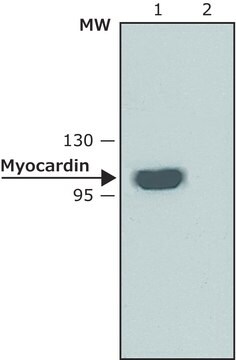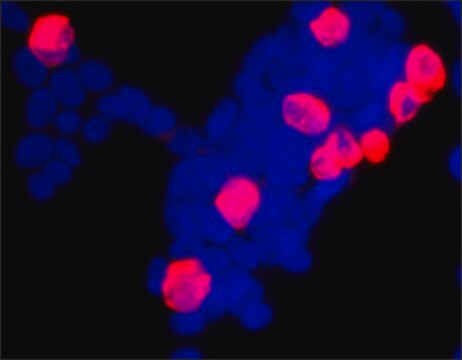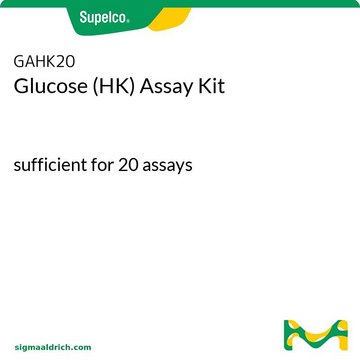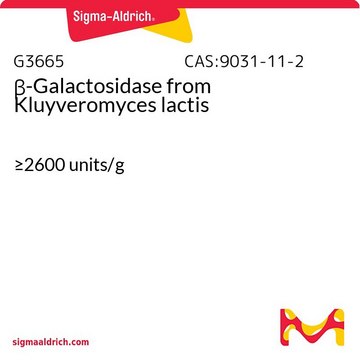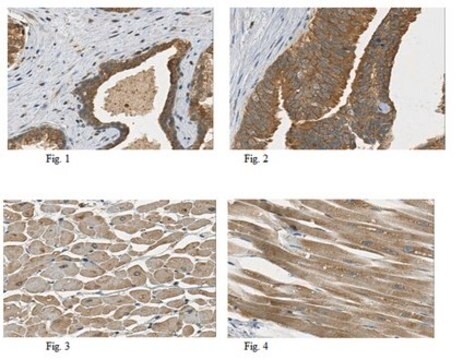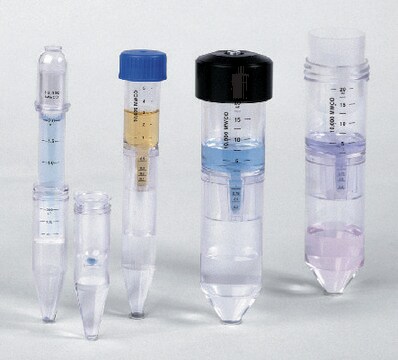M8948
Monoclonal Anti-Myocardin antibody produced in mouse
~2.0 mg/mL, clone MCR54, purified immunoglobulin
Sinonimo/i:
Anti-MYCD, Anti-MYOCD
About This Item
Prodotti consigliati
Origine biologica
mouse
Livello qualitativo
Coniugato
unconjugated
Forma dell’anticorpo
purified immunoglobulin
Tipo di anticorpo
primary antibodies
Clone
MCR54, monoclonal
Stato
buffered aqueous solution
PM
antigen ~150 kDa
Reattività contro le specie
human
Confezionamento
antibody small pack of 25 μL
Concentrazione
~2.0 mg/mL
tecniche
western blot: 2.5-5 μg/mL using HEK-293T cells overexpressing myocardin
Isotipo
IgG2b
N° accesso UniProt
Condizioni di spedizione
dry ice
Temperatura di conservazione
−20°C
modifica post-traduzionali bersaglio
unmodified
Informazioni sul gene
human ... MYOCD(93649)
Descrizione generale
Applicazioni
Azioni biochim/fisiol
Stato fisico
Esclusione di responsabilità
Non trovi il prodotto giusto?
Prova il nostro Motore di ricerca dei prodotti.
Codice della classe di stoccaggio
12 - Non Combustible Liquids
Classe di pericolosità dell'acqua (WGK)
WGK 2
Scegli una delle versioni più recenti:
Certificati d'analisi (COA)
Non trovi la versione di tuo interesse?
Se hai bisogno di una versione specifica, puoi cercare il certificato tramite il numero di lotto.
Possiedi già questo prodotto?
I documenti relativi ai prodotti acquistati recentemente sono disponibili nell’Archivio dei documenti.
Il team dei nostri ricercatori vanta grande esperienza in tutte le aree della ricerca quali Life Science, scienza dei materiali, sintesi chimica, cromatografia, discipline analitiche, ecc..
Contatta l'Assistenza Tecnica.